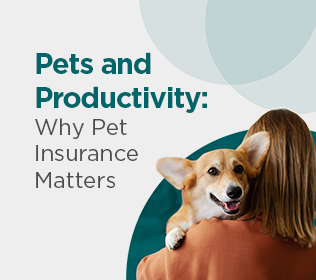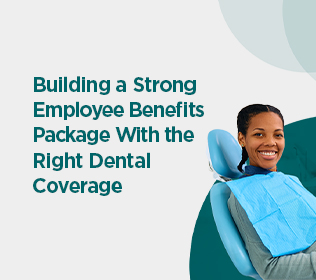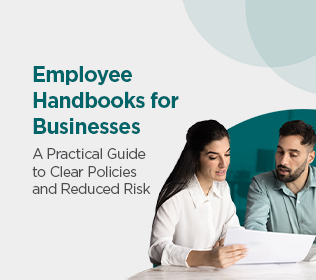Few businesses could have prepared for 2020. At first, it was easy to believe the havoc wreaked by COVID-19 was temporary. However, as we head toward a new year, it’s becoming clear that there is no end in sight – at least not in the foreseeable future. While plenty of businesses were in a reactive state for much of 2020, many are now recognizing this moment in time as a critical opportunity to rethink strategy and mid-size company benefits administration operations while there’s still a chance.
Nearly a year since the first outbreak of COVID-19 in the U.S., one distinction is overwhelmingly clear: businesses that have fared relatively well through the pandemic are far more likely to have the support of a PEO, or professional employer organization. This is especially true for small to mid-size company benefits administration (SMBs) working with limited staff and budgets.
What is included in benefits administration?
PEOs manage employee benefits, payroll, HR compliance, workers compensation and other critical HR functions on behalf of their small business clients, simplifying HR operations and enabling SMBs to focus on their core business goals. Compared to other small businesses, SMBs that partner with a PEO are 91% less likely to be temporarily closed due to COVID-19, and 60% less likely to have permanently closed (McBassi & Company, 2020).
That’s because a PEO serves as an extension of an SMB’s HR department, arming SMBs with an entire team of certified payroll, employee benefits, and compliance professionals dedicated to providing one-on-one support. This level of personalized HR support has proven invaluable to SMBs as COVID-19 continues to impact communities around the world. Below are three ways PEOs are helping SMBs manage the impacts of the pandemic.
Helping SMBs Remain Compliant
The world is changing, and it’s changing fast. Compliance remains a top concern for SMBs as we look toward 2021, especially amid the constant influx of new local, state, and federal regulations surrounding COVID-19. As COVID-19 cases continue to rise, employers must adjust to a new reality or risk facing penalties ranging from fines to far-reaching legal consequences. The shift to remote work continues to make compliance even more complex, as many required communications must now be sent to employees via email or direct mail.
A PEO keeps current with every new local, state, and federal regulation impacting SMBs so their clients don’t have to worry. It also works with internal HR teams to ensure each employee receives the compliance information required by law. With the support of a PEO, small business owners get the peace of mind knowing their business is always protected, and their employees are always informed.
Reducing Employee Benefit Costs
Rising health insurance renewal rates are among the top costs plaguing SMBs year after year. A PEO helps SMBs lower employee benefits costs by providing better group rates. It does this by combining the purchasing power of all its clients to access group discounts on premium health insurance plans from leading nationwide providers, then passing those savings along to clients.
With a PEO, SMBs also receive the invaluable support of certified HR professionals. From selecting the right plans to getting each employee enrolled on time, a PEO serves as a full-service extension of your HR team to help manage every aspect of mid-size company benefits administration. This can help SMBs simplify HR operations and increase productivity by reducing the administrative workload on internal staff. These seemingly small changes can add up to greater efficiency and significant savings over time.
Even with a PEO, however, employee benefit costs can skyrocket over time. It’s important to partner with a PEO that demonstrates a commitment to minimizing costs for their clients.
Managing Payroll…And Much More.
Many SMBs utilize external payroll services, but a PEO is much more than a payroll service provider. As a co-employer, a PEO assumes certain financial responsibilities on behalf of a business, including all payroll administration and compliance with local, state, and federal tax laws. It’s a much bigger responsibility than simply processing payroll, which means PEOs are able to provide much more comprehensive support. When COVID-19 forced employers to furlough workers and make other payroll adjustments, PEOs were ready to manage it all for their clients and ensure compliance throughout each change.
Federal relief measures in response to COVID-19 included passage of the Paycheck Protection Program (PPP), which provided loans to small and medium-sized businesses to help keep employees on payroll. Many of these loans are eligible for full forgiveness, but the process to both obtain the loans and request loan forgiveness are complicated.
Many SMBs struggle with interpreting the various applications, calculations, and requirements associated with PPP loans and loan forgiveness. On the other hand, businesses already partnered with a PEO received invaluable one-on-one support from payroll specialists as they completed their applications, as well as timely expert guidance on every legislative change along the way. For these businesses, partnership with a PEO proved to be a vital component to success in 2020.
As we get ready to close the books on this historic year, most businesses face more uncertainty than ever before. The global COVID-19 pandemic highlighted how essential comprehensive HR support is to the success of any business. With no end to the pandemic in sight, there’s never been a better time for SMBs to partner with a PEO for comprehensive HR support. Learn more about the benefits of partnering with a PEO for your business at www.prestigepeo.com.




